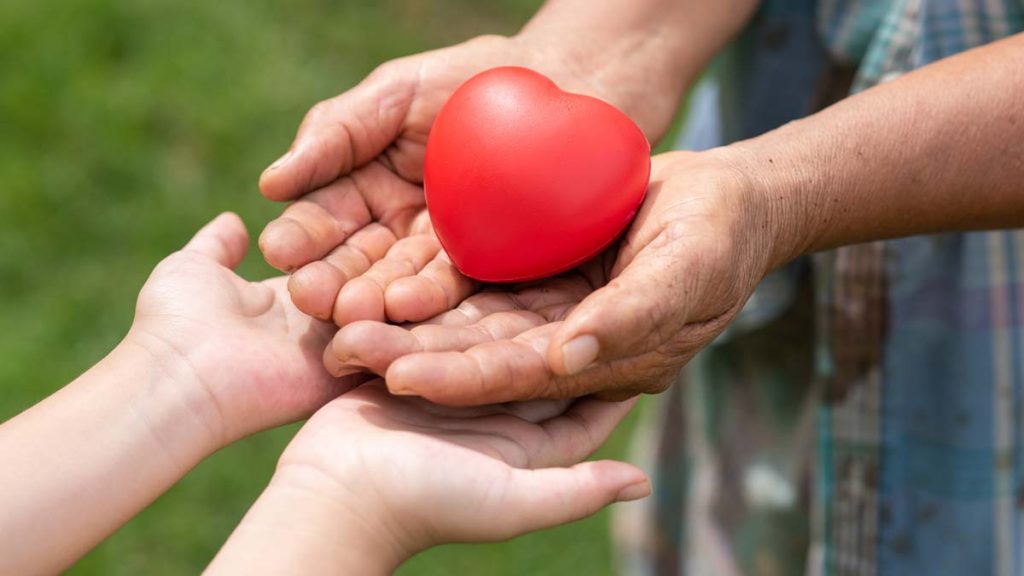La caridad, que es conocida como la virtud de dar a otros de acuerdo con su necesidad, es una de las tantas virtudes que aparece en el estudio sobre Dios y su relación con el hombre, pero en ocasiones se olvida que es el fruto de la misericordia, que es más utilizada como enseñanza en la Sagrada Escritura, pues en ella se refleja el pleno amor del Señor en su simple definición “poner el corazón” (alma y espíritu) en la miseria de otro.
La caridad se puede convertir, si no se entiende bien, en una trampa para la conciencia. De ahí las frases de insinuación que utilizan los menesterosos cuando piden algo de los demás, por ejemplo “una caridad por el amor de Dios”.
Sólo hacen caridad los que viven la misericordia de Dios. Lo demás es reparto de dádivas y migajas, que es a lo que el mundo se ha acostumbrado, a dar a los que no tienen, sin aplicar el principio de dar de corazón “viendo en los otros al prójimo como si fuéramos nosotros mismos”.
La religiosa católica, conocida como la madre Teresa de Calcuta, refería con frecuencia que el principio de dar debe de ser “hasta que duela”. El razonamiento bien aplicado tiene un fundamento bíblico explicado por Jesús, “porque tuve hambre, y me disteis de comer; tuve sed, y me disteis de beber; fui forastero, y me recogisteis; estuve desnudo, y me cubristeis; enfermo, y me visitasteis; en la cárcel, y vinisteis a mí”.
Como una referencia estadística de los ministerios religiosos que trabajan en ciudades como Juárez únicamente el 3% trabajan haciendo caridad siendo que la necesidad es extrema. La mayoría de las personas están acostumbradas a dar lo que no quieren, lo que no les gusta, lo que no sirve, lo que les sobra. Pocos tienen el entendimiento porque el egoísmo y la falta de amor están marcando la ruta de la humanidad.
Tan polémica y difícil de entender es la caridad, que los traductores de la Biblia no la incluyen como tal. Por eso la caridad se ha convertido en un sinónimo de mendigar, cuando en realidad, como virtud, es uno de los más grandes cultivos del hombre, pues todo lo que hagamos en la tierra tiene repercusión.
Y tú ¿das las sobras, das lo que no sirve, das lo que no te gusta…o haces caridad?
The value of charity
Charity, known as the virtue of giving to others according to their need, is one of the many virtues that appear in the study of God and his relationship with man. Still, sometimes it is forgotten that it is the fruit of mercy, which is more used as teaching in Sacred Scripture because it reflects the complete love of the Lord in its simple definition “to put the heart” (soul and spirit) in the misery of another.
Charity can become, if not correctly understood, a snare to the conscience. Hence, the phrases the needy use when they ask for something, for example, “charity for the love of God.”
Only those who live the mercy of God do charity. The rest is the distribution of gifts and crumbs, which is what the world has become accustomed to, to give to those who do not have, without applying the principle of giving from the heart “seeing in others our neighbor as if we were ourselves.”
The Catholic nun, known as Mother Teresa of Calcutta, often said that the principle of giving should be “until it hurts.” The reasoning well applied has a biblical foundation explained by Jesus, “for I was hungry, and you gave me food, I was thirsty, and you gave me drink, you and a stranger took me in, naked, and you clothed me, sick, and you visited me, in prison and you came to me.”
As a statistical reference of the religious ministries that work in cities like Juarez, only 3% work in charity even though the need is extreme. Most people are accustomed to giving what they do not want, what they do not like, what they do not like, what is useless, what they have too much of. Few have the understanding because selfishness and lack of love are marking the path of humanity.
Charity is so controversial and difficult to understand that the translators of the Bible do not include it as such. That is why charity has become a synonym for begging, when in fact, as a virtue, it is one of the most significant crops of man because everything we do on earth has repercussions.
And you, do you give leftovers, give what is useless, give what you don’t like, or do you give charity?

